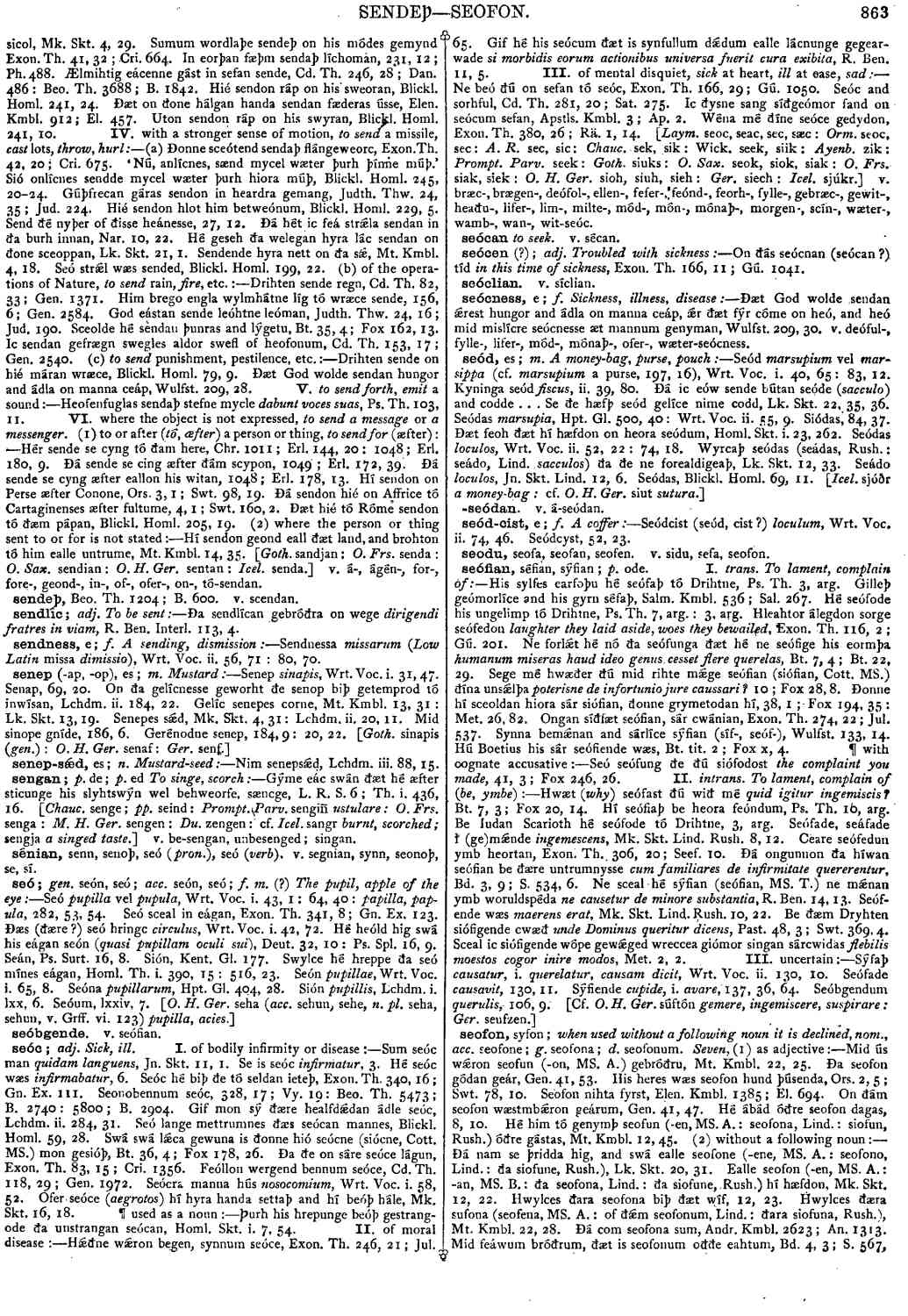seóc
- adjective
-
Sum seóc man quidam languens. Jn. Skt. II, I. Se is seóc
infirmatur,
3. -
Hé seóc wæs
infirmabatur
, 6. - Seóc hé biþ ðe tó seldan ieteþ. Exon. Th. 340, 16 ; Gn. Ex.
- 328, 17; Vy. 19: Beo. Th. 5473; B. 2740 : 5800; B. 2904.
- Lchdm. ii. 284, 31.
- Blickl. Homl. 59, 28.
- Cott. MS.) mon gesióþ, Bt. 36, 4; Fox 178, 26.
- Exon. Th. 83, 15 ; Cri. 1356.
- Cd. Th. 118, 29 ; Gen. 1972.
- Wrt. Voc. i. 58, 52.
- Mk. Skt. 16, 18. ¶ used as a noun
-
þurh his hrepunge beóþ gestrangode ða unstrangan seócan,
- Homl. Skt. i. 7, 54.
-
Hǽðne wǽron begen, synnum seóce,
- Exon. Th. 246, 21; Jul. 65.
-
Gif hé his seócum ðæt is synfullum dǽdum ealle lácnunge gegearwade si morbidis eorum actionibus universa fuerit cura exibita, R. Ben. 11, 5. III. of mental disquiet, sick at heart, ill at ease, sad :-- Ne beó ðú on sefan tó seóc, Exon. Th. 166, 29;
Gú.
1050. -
Seóc and sorhful,
- Cd. Th. 281, 20; Sat. 275.
-
Ic ðysne sang síðgeómor fand on seócum sefan,
- Apstls. Kmbl. 3 ; Ap. 2.
-
Wéna mé ðíne seóce gedydon, Exon. Th. 380, 26 ;
Rä.
- I. 14.
Bosworth, Joseph. “seóc.” In An Anglo-Saxon Dictionary Online, edited by Thomas Northcote Toller, Christ Sean, and Ondřej Tichy. Prague: Faculty of Arts, Charles University, 2014. https://bosworthtoller.com/27444.
Checked: 0